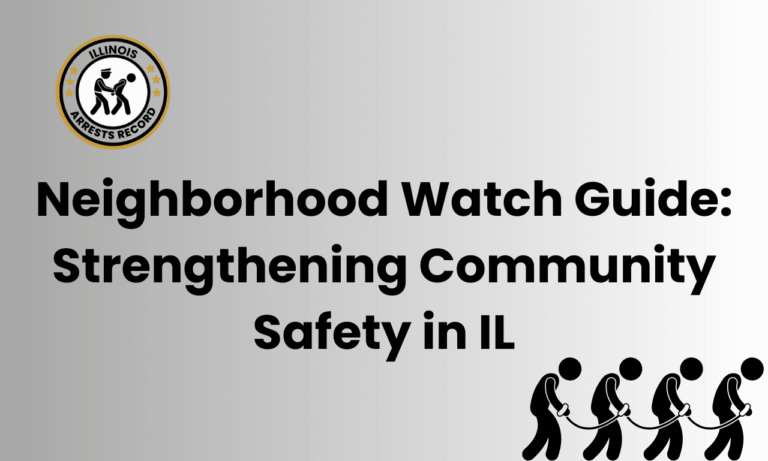Illinois Court System and Legal Process
The Illinois Court System and Legal Process is a complex and essential part of the state’s governance. Understanding how the court system works is crucial for anyone involved in legal matters or with an interest in the legal field. This informative introduction aims to shed light on the structure and processes of the Illinois Court System, providing a comprehensive overview for readers of all proficiency levels.
Within the Illinois Court System, there are several levels of courts, each with its own jurisdiction and responsibilities. At the lowest level, we have the Circuit Courts, which handle the majority of cases in the state. These courts deal with a wide range of civil and criminal matters, including family law, probate, and juvenile cases. Moving up the hierarchy, we have the Appellate Courts, which review decisions made by the Circuit Courts to ensure legal accuracy and fairness. Finally, we have the Illinois Supreme Court, which is the highest court in the state and has the final say on legal matters.
Understanding the legal process within the Illinois Court System is equally important. From the initial filing of a case to the resolution, there are specific steps and procedures that must be followed. This introduction will explore the various stages of the legal process, including pleadings, discovery, trial, and appeal, providing readers with a comprehensive understanding of how cases progress through the Illinois Court System.
Structure of the Illinois Court System
At the heart of the Illinois Court System is a complex hierarchy of courts, each with its own distinct jurisdiction and responsibilities. Understanding the structure of the court system is essential for anyone involved in legal matters or with an interest in the legal field.
Circuit Courts: The Foundation of the Legal Process
The Circuit Courts form the backbone of the Illinois Court System, handling the majority of cases in the state. These courts have broad jurisdiction and deal with a wide range of civil and criminal matters. From family law and probate cases to juvenile offenses, the Circuit Courts ensure justice is served at the local level.
Appellate Courts: Ensuring Legal Accuracy and Fairness
As cases progress through the legal system, the Appellate Courts play a vital role in reviewing decisions made by the Circuit Courts. These intermediate-level courts ensure that legal accuracy and fairness are upheld. Their primary responsibility is to examine the lower court’s decisions and determine if any errors have occurred.
The Illinois Supreme Court: The Final Arbiter of Justice
At the pinnacle of the Illinois Court System sits the Illinois Supreme Court. As the highest court in the state, it has the ultimate authority to make final decisions on legal matters. The Supreme Court consists of seven justices who carefully review cases brought before them and issue rulings that shape the state’s legal landscape.
The Legal Process: From Filing to Resolution
Understanding the legal process within the Illinois Court System is crucial for navigating the complexities of the justice system. From the moment a case is filed to its ultimate resolution, there are specific steps and procedures that must be followed to ensure fairness and justice for all parties involved.
Pleadings: Initiating the Legal Action
The first stage of the legal process is the filing of pleadings. Pleadings are formal written documents that set out the parties’ claims and defenses. This initial step is crucial as it establishes the foundation for the entire case.
Discovery: Uncovering the Facts
Once the pleadings are filed, the discovery phase begins. This stage allows both parties to gather evidence, interview witnesses, and exchange information relevant to the case. Discovery plays a vital role in ensuring that all facts are revealed and can significantly impact the outcome of a trial.
Trial: Presenting Arguments and Evidence
The trial stage is where arguments are presented, evidence is introduced, and witnesses testify. This is the moment when the case is heard before a judge or a jury, and both parties have the opportunity to present their side of the story. The trial is a crucial step in the legal process, as it determines the ultimate outcome of the case.
Appeal: Seeking a Review of the Decision
If a party is dissatisfied with the outcome of the trial, they have the right to appeal the decision. The appeal process allows a higher court to review the lower court’s decision and determine if any errors were made. This stage provides an opportunity for a case to be reconsidered and potentially overturned.
Understanding the structure and processes of the Illinois Court System is vital for anyone involved in legal matters or with an interest in the legal field. By familiarizing yourself with the hierarchy of courts and the stages of the legal process, you can navigate the complexities of the justice system with confidence.
FAQ’s
What types of cases do the Circuit Courts handle?
The Circuit Courts handle a wide range of civil and criminal matters. This includes family law cases, such as divorce and child custody disputes, probate cases, and juvenile cases. They are also responsible for hearing criminal cases, both misdemeanor and felony.
What is the role of the Appellate Courts?
The Appellate Courts review decisions made by the Circuit Courts to ensure legal accuracy and fairness. They do not re-try cases but instead focus on assessing whether the lower court correctly applied the law and followed proper procedures.
The highest court in the Illinois Court System is the Illinois Supreme Court. It is the court of last resort, meaning its decisions are final and cannot be appealed. The Supreme Court consists of seven justices who review cases of significant legal importance or cases with conflicting decisions from the Appellate Courts.
The legal process within the Illinois Court System involves several stages. It begins with the filing of a case, known as pleadings, where the parties present their claims and defenses. This is followed by the discovery stage, where evidence is gathered and exchanged between the parties. The case then proceeds to trial, where the evidence is presented, and a decision is made. If a party is dissatisfied with the outcome, they have the option to appeal to a higher court.
Understanding the Illinois Court System is crucial for anyone involved in legal matters or with an interest in the legal field. It allows individuals to navigate the complex court system more effectively, ensuring their rights are protected and that they can make informed decisions regarding their cases. Additionally, understanding the court system promotes transparency and accountability within the legal process.







